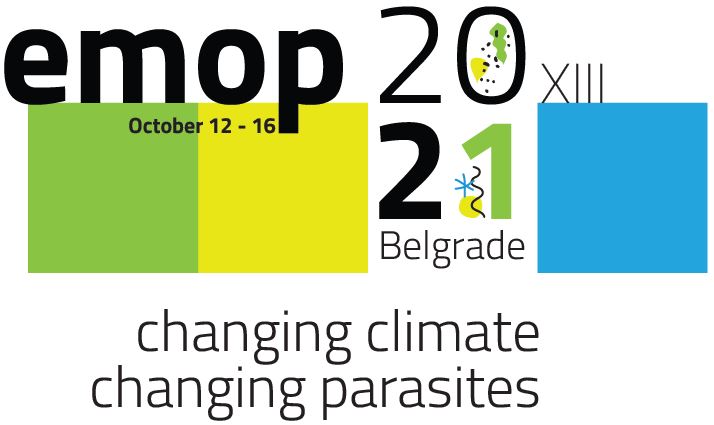Abstract
Submission
Abstract Submission is now closed
Call for Late-breaking abstract submission
Opens July 17, 2021 (00:00 CET)
Deadline August 15, 2021 (23:59 CET)
Notification August 25, 2021
Regular abstract submission closed.
The EMOP2021 Scientific Committee announces Late-breaking Abstract Submission to be included in the EMOP2021 programme as poster presentations.
Late-breaking abstracts can be submitted for consideration via the abstract submission system, prepared in MS Word documents as per instructions provided in the template. Abstract topics can be seen here.
Abstracts must be received by the announced deadline. Abstracts received after the deadline will not be considered.
To ensure assessment of a late-breaking poster abstract and inclusion in the EMOP programme, registration of the presenting author, with payment, must be completed.
Notification of abstract acceptance will be communicated by August 25, 2021.
| Registration Open | 21 March 2021 |
| Call for Abstract / Symposia Open | 21 March 2021 |
| Abstract Submission Deadline | 28 June 2021 5 July 2021 (final extension) |
| Late-breaking abstract submission opens | 17 July 2021 |
| Acceptance Announcement | 28 July 2021 |
| Early Registration Deadline | 12 August 2021 |
| Late-breaking Abstract Submission Deadline | 15 August 2021 |
| Notification of acceptance of Late-breaking abstract submissions | 25 August 2021 |
| EFP Student Scholarships | 30 August 2021 |
| Young Scientist Awards | 15 September 2021 |
RULES FOR SUBMISSION
Please read the submission rules before submitting an abstract.
- Abstracts must be submitted online via the website only. Abstracts submitted by email will not be accepted.
- Abstracts must be received by the announced deadline. Abstracts received after the deadline will not be considered.
- There will be no extensions of the deadline for abstract submission.
- The abstracts will be presented as oral presentations or as posters. The preferred mode of presentation may be marked, but the final decision rests with the Scientific Committee.
- Abstracts should be submitted as MS Word documents prepared as per instructions provided in the template.
- The submitted version of the abstract will be the final one, subsequent changes will not be possible.
- Each regular or virtual participant may be a presenting author of a maximum of three presentations at the Conference.
- Presenting authors, both regular and virtual, must be registered participants. To register, the presenting author must first submit an abstract and get the Abstract ID.
- Please note also that abstract presenters must pay the full appropriate fee (one day fee is not an option for abstract presenters).
TOPICS
| Abbreviation | Topic |
| Plenary | Plenary lecture |
| CA COMBAR | Combatting anthelmintic resistance in ruminants – COST Action 16230 |
| ClinicToxo | Clinical hot topics in toxoplasmosis |
| ClinicTropPar | Clinical and tropical parasitology |
| Crypto | Cryptosporidium |
| Dirofilaria | Dirofilaria (not vectors) |
| EchinoDivers | Diversity of Echinococcus and other taeniids |
| EVPC | EVPC – European Veterinary Parasitology College Symp I, II |
| FishPar | Fish parasitology |
| FoodWaterBorne | Foodborne and waterborne parasites: changing climate, changing trends, changing parasites I & II … |
| Giardia | Giardia |
| GnosisGIS | 14th International Symposium of Geospatial Health – GnosisGIS |
| HelmImmunoMbiome | Helminth immunomodulation and interactions with the microbiome |
| HelmPhylogen | Helminth phylogeny and systematics |
| IntProjects | International projects in parasitology |
| IWAAP | 6th International Workshop on Arctic and Antarctic Parasitology – IWAAP 6 |
| KE Mott | 6th K. E. Mott Symposium on Schistosomiasis & Foodborne Trematodiases |
| Malaria | Malaria I; II |
| Migrations | Migrants and migrating parasites |
| Mosquitoes | Mosquitoes and mosquito-borne diseases |
| OIE FoodborneZoon | OIE Collaborative Centre on Foodborne Zoonotic Parasites Symposium on Foodborne zoonotic parasites |
| OneHealth | A One Health approach to manage parasitic infections |
| OtherEctopar | Other ectoparasites: from biology to control |
| Paleo | Paleoparasitology |
| ParMicrobiome | The microbiome of parasites and role in diseases |
| ProtoLivestock | Protozoan infections in livestock and their control – zoonotic and animal health aspects |
| ProtoVacc | Antiprotozoan vaccines: status and prospects |
| ProtozEnvironDg | Protozoa in food & environment – methods used in different environmental matrices (water, soil, vegetables, shellfish…) |
| Publishing | Publishing in parasitology |
| Sandflies | Sandflies and sandfly-borne diseases |
| Systematics | Systematic parasitology (Integrated approach to parasite biodiversity) |
| ToxoGenDivers | Toxoplasma genetic diversity |
| Trichinella | Trichinella |
| VectorEntomol | Vector entomology |
| ViscLeish | Diagnosis and epidemiology of visceral leishmaniasis |
| WildPar | Wildlife parasitology |
| SEE Dirofil | SEE Dirofilaria & other emerging vectorborne zoonoses |
| SEE EchTaenCyst | SEE Echino/taenia/cysticerc |
| SEE OneHealth | SEE One Health |
| SEE Toxo | SEE Toxoplasmosis |
| SEE Trichinella | Trichinellosis and Trichinella infection in SEE: current status |
| SEE Vectors | SEE Vectors and vector-borne pathogens |
